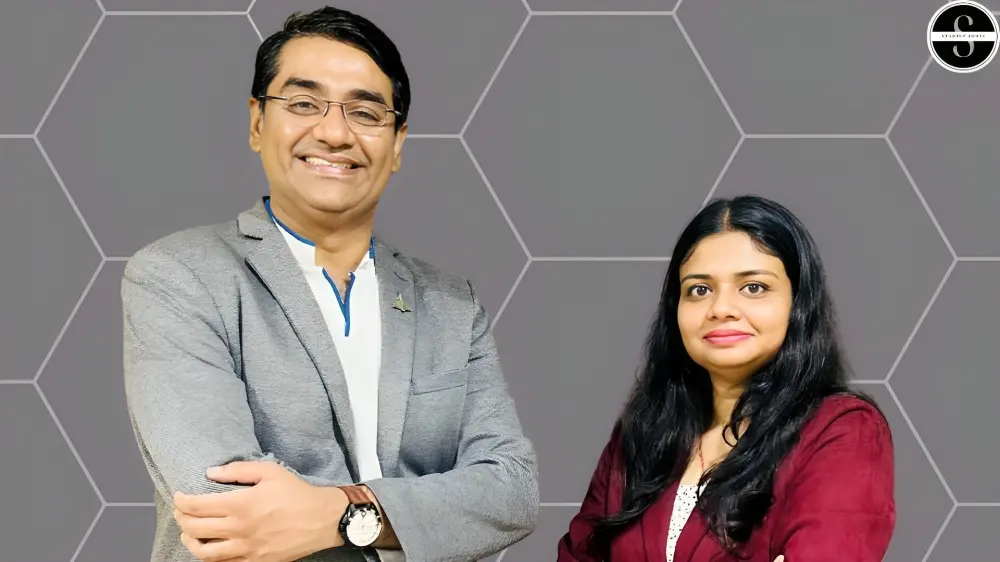Deepinder Goyal: Zomato’s Success Story
The food delivery segment in India has witnessed an unprecedented surge in recent years. Late-night cravings and urgent home delivery have become the norm.
Among the few dominant brands in this industry stands Zomato, an Indian restaurant aggregator that delivers food in almost every Indian city.
In this article, we will delve into the success story of Deepinder Goyal, the co-founder and CEO of Zomato, and how he revolutionized the food delivery industry in India.
Early Life and Education
Deepinder Goyal was born on January 26, 1983, in Punjab, India. He hails from a middle-class family and had a modest upbringing.
Goyal graduated from the prestigious Indian Institute of Technology, Delhi, in 2005, with a degree in Mathematics and Computing.
Little did he know that his interest in food would pave the way for a groundbreaking venture that would change the way people order and enjoy their meals.
The Birth of Zomato
Goyal’s entrepreneurial journey began while working as a Senior Associate Consultant at Bain and Company.
Frustrated with the long queues and lack of information when ordering food, Goyal and his colleague, Pankaj Chaddah, came up with a creative solution.
They created a website for food ordering within the company using the company intranet. To their surprise, the website received heavy traffic and positive feedback.
This success sparked the idea of FoodieBay.com, later renamed Zomato, which aimed to provide a comprehensive platform for ordering food online.
Early Challenges and Growth
Launching Zomato was not without its challenges. Goyal faced resistance from his family, who were apprehensive about leaving a stable job and venturing into the uncertain world of startups.
However, with the support of his wife, Kanchan Joshi, and the hiring of Gunjan Patidar, another IITian, to assist with operations, Goyal persevered through the initial hurdles.
Zomato started by adding more restaurants to its platform, expanding from mega-cities like Kolkata and Mumbai to Pune and Bangalore.
The concept of online food ordering was still relatively unknown, and Zomato had to face numerous entrepreneurial problems to establish itself as a reliable platform.
However, as more restaurants and pubs joined Zomato, its popularity soared.
Funding and Expansion
Like many startups, Zomato faced financial challenges in its early years. However, its fortunes changed when Info Edge, a prominent Indian internet company, invested $1 million in Zomato in August 2011.
This funding boost allowed Goyal and his team to dedicate their full attention to the growth of Zomato. The trend of food delivery and ordering took India by storm, and Zomato became a household name.
With rapid developments in technology, Zomato expanded its operations to countries like Dubai, UAE, Sri Lanka, Qatar, the United Kingdom, South Africa, the Philippines, and New Zealand.
The company launched applications for iOS, Android, and Windows, further increasing its popularity. Zomato also collaborated with Citibank to create the “Citibank Zomato Restaurant Guide.”
Acquisitions and Global Presence
Zomato’s growth strategy included acquiring startups in different countries to increase its global presence.
The company acquired Gastronauci, Poland’s restaurant search service, and Cibando, an Italian restaurant finder, in 2014.
Its biggest acquisition came in 2022 when Zomato acquired India-based Blinkit (formerly Grofers) in an all-stock deal worth an estimated $560 million.
These acquisitions helped Zomato solidify its position as a leading food delivery platform.
Zomato’s Success and Recognition
Under Deepinder Goyal’s leadership, Zomato has received multiple awards, most notably the Economic Times Startup of the Year when Goyal was just 31 years old.
The company’s success can be attributed to its focus on customer satisfaction and providing a seamless food ordering experience.
Today, Zomato is publicly traded, with its shares listed on the BSE and NSE. Its market capitalization stands at $11.67 billion, making it one of the most valuable companies in the world.
Deepinder Goyal: Net Worth
Deepinder Goyal has an estimated net worth of Rs 2,030 crore.
His net worth has seen fluctuations over the years, with his salary dropping from over Rs 3 crore per annum in 2020 to Rs 1.96 crore in FY 2021.
In 2022, Goyal donated ESOP shares worth Rs 387 crore to the Zomato Foundation, which supports the company’s delivery partners, totaling nearly Rs 700 crore.
Deepinder Goyal on Shark Tank India

Deepinder Goyal’s success has led him to become one of the new sharks on Shark Tank India Season 3. As a seasoned entrepreneur, he aims to invest in unique and scalable businesses that challenge the status quo.
Goyal’s addition to the panel of sharks brings a wealth of knowledge and experience, making the new season even more exciting and informative for aspiring entrepreneurs.
Conclusion
Deepinder Goyal journey from a modest upbringing to revolutionizing the food delivery industry in India is truly inspiring.
With the creation of Zomato, he has provided a platform that connects restaurants and customers, making food ordering more convenient and efficient.
Through perseverance, strategic acquisitions, and a customer-centric approach, Goyal has propelled Zomato to great heights.
As Zomato continues to expand its global footprint, it will undoubtedly remain a key player in the food delivery industry.
Also Read: Meet Ritesh Agarwal: From College Dropout to Billionaire








